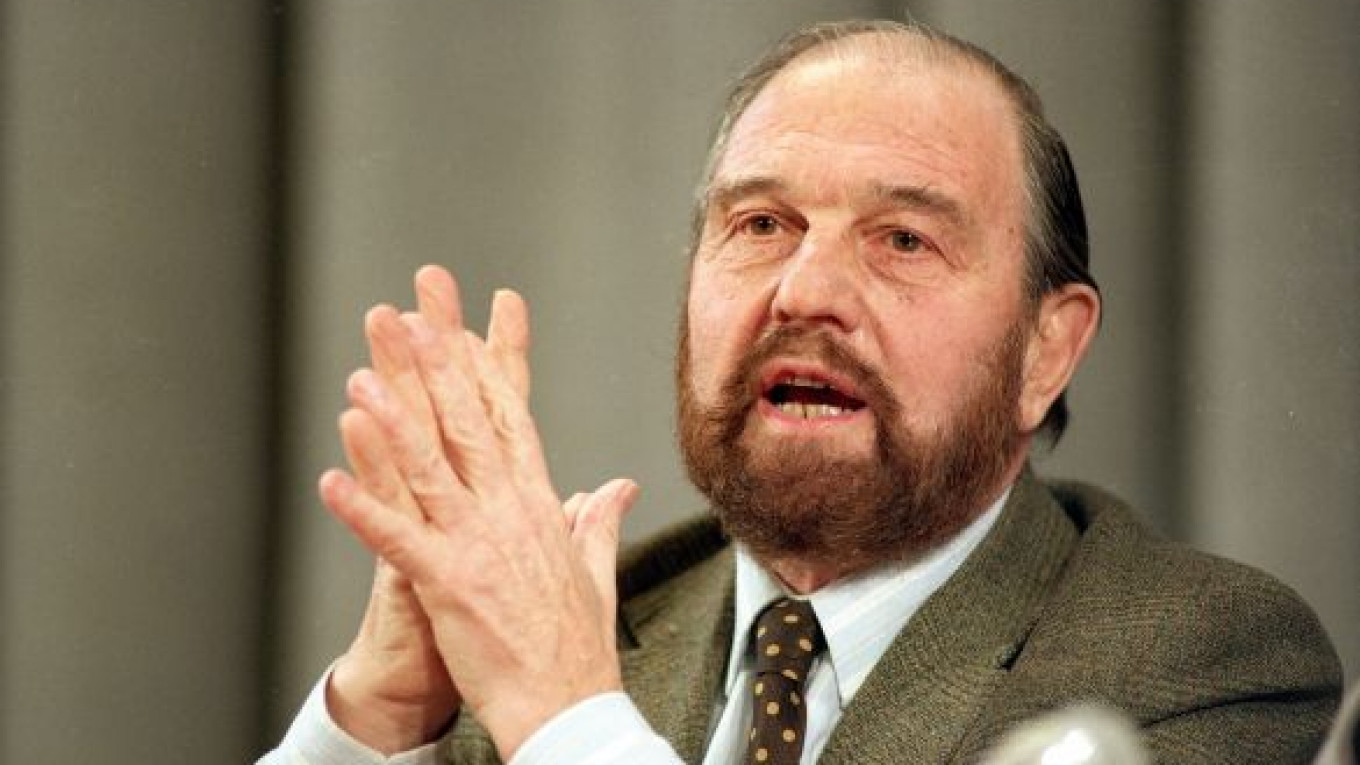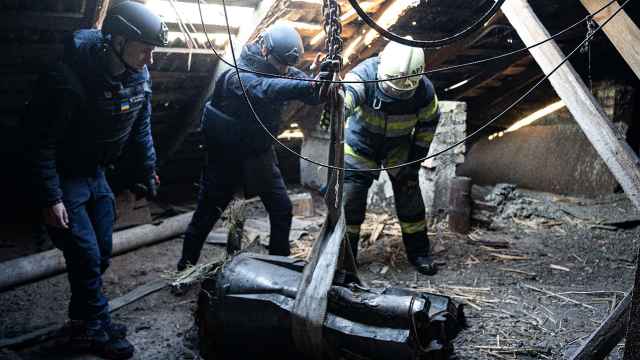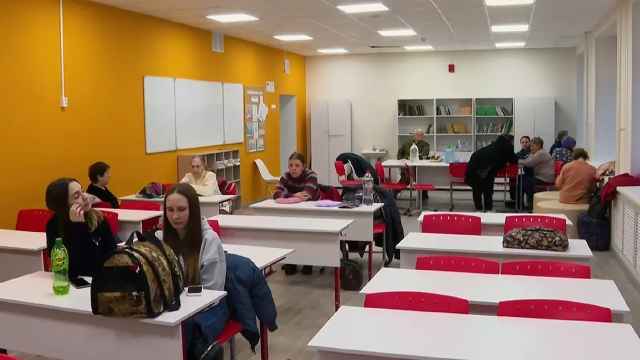George Blake, a former British spy who doubled as a Soviet agent, has spoken about his career with pride and called himself an "exceptionally lucky man" in an interview published this week.
Blake, who will turn 90 on Sunday and has lived in Russia since his escape from British prison in 1966, told the Rossiiskaya Gazeta daily that he has spent his "happiest" years in the country.
"When I worked in the West I always felt a looming threat of exposure. Here I felt myself free," he said.
During his time as a double agent, Blake passed some of the most coveted British secrets to the Soviets. He said that exposing a Western plan to eavesdrop on Soviet communications from an underground tunnel into East Berlin was his main achievement.
Blake also shared details of his adventures, including meetings with a Soviet liaison in East Berlin. He said that once a month he would take a train to East Berlin, make sure that he wasn't being followed, and go by a car to a secret apartment where he and his contact would have a talk accompanied by a glass of Soviet-made sparkling wine.
In 1961, Blake was exposed by a Polish defector and sentenced to 42 years in prison. He said that the British prison authorities were lax enough to allow him to take regular walks with another Soviet spy, Gordon Lonsdale.
In October 1966, Blake made a dashing escape from prison with the assistance of several people whom he met in custody. He broke his wrist while jumping the wall and told Rossiiskaya Gazeta in Tuesday's issue that he still feels the pain sometimes. He spent two months hiding at his assistant's place, and was then driven across Europe to East Berlin in a wooden box under a car.
In the Soviet Union, Blake maintained contacts with other British double agents. He said he met regularly with Donald Maclean and Kim Philby, members of the so-called Cambridge Five, and he said he and Maclean were particularly close.
Blake said he adapted well to life in Russia and once joked at a meeting with Russian intelligence officers that he's like a "foreign-made car that adapted well to Russian roads." ''They appreciated the joke," said Blake, who was given the rank of colonel by Russian intelligence authorities.
Blake said that he wanted to be a priest when he was young but has stopped being religious.
"As long as our brain stops receiving blood, we pass away, and there will be nothing afterward," he said. "There will be neither a punishment for the bad things we have done, nor a reward for the good deeds."
Once in the Soviet Union, Blake divorced his wife and married a Russian woman. He said that his three sons from the first marriage plan to visit him on his birthday.
"I'm a very lucky man, exceptionally lucky," Blake said.
Related articles:
A Message from The Moscow Times:
Dear readers,
We are facing unprecedented challenges. Russia's Prosecutor General's Office has designated The Moscow Times as an "undesirable" organization, criminalizing our work and putting our staff at risk of prosecution. This follows our earlier unjust labeling as a "foreign agent."
These actions are direct attempts to silence independent journalism in Russia. The authorities claim our work "discredits the decisions of the Russian leadership." We see things differently: we strive to provide accurate, unbiased reporting on Russia.
We, the journalists of The Moscow Times, refuse to be silenced. But to continue our work, we need your help.
Your support, no matter how small, makes a world of difference. If you can, please support us monthly starting from just $2. It's quick to set up, and every contribution makes a significant impact.
By supporting The Moscow Times, you're defending open, independent journalism in the face of repression. Thank you for standing with us.
Remind me later.






